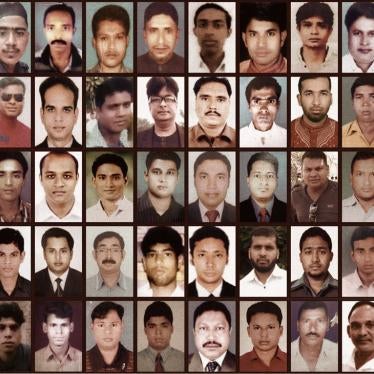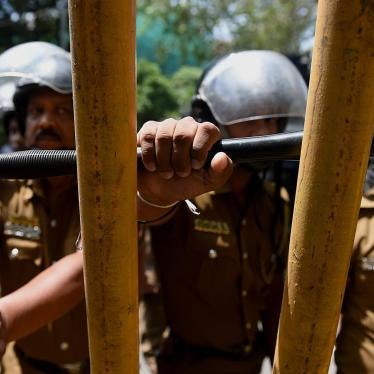When President Megawati Sukarnoputri visits the province of Aceh early next month, she can promise what she likes, but she must deliver justice.
Aceh, a rich province of more than 4 million people, has been wracked for decades by a conflict between Indonesian troops and pro-independence guerrillas from the Free Aceh Movement, known by its Indonesian initials as GAM. The conflict has escalated dramatically since the fall of President Suharto in 1998. More than a thousand people, most of them civilians, have been killed so far this year.
To many Indonesians the war represents a threat to national unity; the rebels, and Acehnese more generally, get little sympathy from the Indonesian public. GAM's attacks on non-Acehnese have not helped.
But that does not make a military solution the answer. In fact, abuses by the police and army have fueled support for independence among ordinary Acehnese.
If the war has reached a critical juncture, it is at least in part because no action has been taken against Indonesian military forces responsible for murder, rape, disappearances and prolonged arbitrary detention of thousands of Acehnese from 1990 onward. More troops are not the answer.
In her national day speech on Aug. 17, Mrs. Megawati apologized to the people of Aceh for their suffering. She sent a high-level ministerial team to Aceh last week, although the largely ceremonial tour was widely scorned. She has agreed to release rebel negotiators detained in late July just before she took office. The detentions all but killed a "dialogue" between the government and GAM leaders.
Mrs. Megawati may revoke the decree of her predecessor that set current military operations in motion. She is actively promoting a new law giving Aceh more autonomy than other provinces in Indonesia, although much of it is giving new names to existing institutions. Nevertheless, the message has got through that Aceh matters.
But is this for real or just for show? The Acehnese could be forgiven for being skeptical. Mrs. Megawati's predecessors, Presidents B.J. Habibie and Abdurrahman Wahid, both visited Aceh and apologized for abuses that occurred from 1990 to 1998, but nothing happened. They set up fact-finding commissions, but no one was held accountable. No safeguards were put in place to prevent new abuses from happening.
Quite the opposite. The Wahid government authorized a new military offensive. While the offensive appeared to have inflicted heavy blows on GAM, it also provided a cover for detaining many nonviolent political activists and human rights monitors.
Mrs. Megawati could go to Aceh with more concrete proposals. She could announce the establishment of a human rights court in Medan, northern Sumatra, near Aceh. Such a court was authorized by a November 2000 law to try cases of widespread or systematic abuses in Aceh that occurred after the law was passed. She and her team would have to make a major push to appoint the judges, but it could be done.
She could offer to make relevant government and military files from 1990 to 1998 available to lawyers interested in prosecuting past abuses. She could announce a withdrawal of the hated paramilitary police troops who have been responsible for some of the worst abuses. She could announce that in the interests of freedom of expression, her administration would henceforth eschew any prosecution of political activists or others involved in peaceful pro-independence demonstrations.
Mrs. Megawati could commit her government to publishing a list once a month of all police and military personnel disciplined for wrongdoing in Aceh. She could announce the establishment of a central register of detainees, so that families no longer have to go to hospitals and police stations looking for missing relatives. She could press for the immediate prosecution of four military officers detained since late December 2000 in connection with the murder in North Aceh of three humanitarian workers from an organization working on behalf of torture victims.
This is not to say that only the Indonesian forces have been responsible for abuses. If there is any opportunity in Aceh for the new government in Jakarta today, it is because the Acehnese public, long fed up with the abuses that have accompanied Jakarta's de facto martial law, is showing signs of being fed up with the rebels as well.
Parliamentarians, journalists, independent human rights investigators and humanitarian aid groups are increasingly reporting intimidation from GAM as well as from the government. The popular local newspaper Serambi Indonesia has been closed twice in three months by GAM threats.
But it is the behavior of government forces that Mrs. Megawati, as president and commander in chief, has the direct power to address. If she makes a ceremonial visit devoid of substance, it will only strengthen Acehnese contempt for Jakarta.
Sidney Jones is Asia Director of Human Rights Watch.







